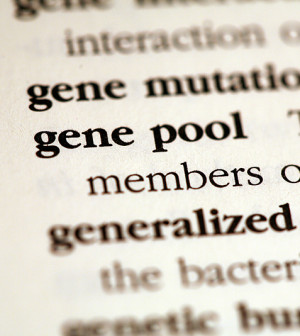- Could Your Grocery Store Meat Be Causing Recurring UTIs?
- Are You Making This Expensive Thermostat Error This Winter?
- Recognizing the Signs of Hypothyroidism
- 10 Strategies to Overcome Insomnia
- Could Artificial Sweeteners Be Aging the Brain Faster?
- Techniques for Soothing Your Nervous System
- Does the Water in Your House Smell Funny? Here’s Why
- Can a Daily Dose of Apple Cider Vinegar Actually Aid Weight Loss?
- 6 Health Beverages That Can Actually Spike Your Blood Sugar
- Treatment Options for Social Anxiety Disorder
Genes May Determine Body Weight by Shaping Gut Bacteria


Genes influence a person’s body weight by determining the types of bacteria that live in the intestines, a new study reveals.
“Up until now, variation in the abundances of gut microbes has been explained by diet, the environment, lifestyle and health,” said senior study author Ruth Ley of Cornell University.
“This is the first study to firmly establish that certain types of gut microbes are heritable — that their variation across a population is in part due to host genotype variation, not just environmental influences,” she added.
For the study, researchers looked at 416 pairs of twins and identified a family of intestinal bacteria that is more common in lean people. The genes associated with this family of bacteria are highly heritable, which means it is easy for parents to pass them to their children.
The investigators also transplanted this family of bacteria from people to mice and found that the bacteria protected the mice against weight gain.
The findings could lead to therapies where people at risk for obesity and related diseases due to their genetic makeup are given these weight-fighting bacteria, said the authors of the study published Nov. 6 in the journal Cell.
“Our results showing that bacterial abundances run in families may be useful for disease risk prediction,” Ley said in a journal news release. She added that the microbiome — the population of microbes in the human body — is an “attractive target” for treatments.
“By understanding the nature of our association with these health-associated bacteria, we could eventually exploit them to promote health,” she explained.
More information
The U.S. National Institutes of Health has more about the bacterial makeup of the body.
Source: HealthDay
Copyright © 2026 HealthDay. All rights reserved.










